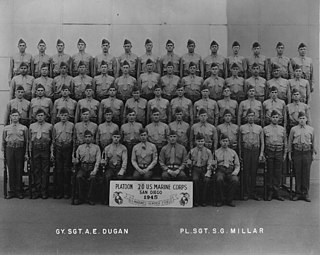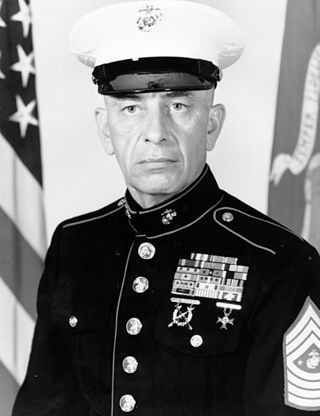A company is a military unit, typically consisting of 100–250 soldiers and usually commanded by a major or a captain. Most companies are formed of three to seven platoons, although the exact number may vary by country, unit type, and structure.

A platoon is a military unit typically composed of two to four squads, sections, or patrols. Platoon organization varies depending on the country and the branch, but a platoon can be composed of 20–50 troops, although specific platoons may range from 10 to 100 people. A platoon is typically the smallest military unit led by a commissioned officer. The platoon leader is usually a junior officer—a second or first lieutenant or an equivalent rank. The officer is usually assisted by a platoon sergeant.

A non-commissioned officer (NCO) is a military officer who does not hold a commission. Non-commissioned officers usually earn their position of authority by promotion through the enlisted ranks. In contrast, commissioned officers usually enter directly from a military academy, officer training corps (OTC) or reserve officer training corps (ROTC), or officer candidate school (OCS) or officer training school (OTS), after receiving a post-secondary degree.
Corporal is a military rank in use by the armed forces of many countries. It is also a police rank in some police services. The rank is usually the lowest ranking non-commissioned officer. In some militaries, the rank of corporal nominally corresponds to commanding a section or squad of soldiers.
Gunnery sergeant (GySgt) is the seventh enlisted rank in the United States Marine Corps, above staff sergeant and below master sergeant and first sergeant, and is a senior non-commissioned officer (SNCO). It has a pay grade of E-7.

The 17th (Northern) Division was an infantry division of the British Army, a Kitchener's Army formation raised during the Great War.
The chart below shows the current enlisted rank insignia of the United States Army, with seniority, and pay grade, increasing from right to left. The enlisted ranks of corporal (E-4) and higher are considered non-commissioned officers (NCOs). The rank of specialist is also in pay grade E-4, but does not hold non-commissioned officer status; it is common that a soldier may never hold the rank of corporal, and instead be promoted from specialist to sergeant, attaining junior NCO status at that time.

Schutztruppe was the official name of the colonial troops in the African territories of the German colonial empire from the late 19th century to 1918. Similar to other colonial armies, the Schutztruppen consisted of volunteer European commissioned and non-commissioned officers, medical and veterinary officers. Most enlisted ranks were recruited from indigenous communities within the German colonies or from elsewhere in Africa.

A section is a military sub-subunit. It usually consists of between 6 and 20 personnel. NATO and U.S. doctrine define a section as an organization "larger than a squad, but smaller than a platoon." As such, two or more sections usually make up an army platoon or an air force flight.
Company quartermaster sergeant is a military rank or appointment.

The company sergeant major (CSM) is the senior non-commissioned soldier of a company in the armies of many Commonwealth countries, responsible for administration, standards and discipline. In combat, their prime responsibility is the supply of ammunition to the company. They also oversee the distribution of other supplies, such as water or food, although that responsibility is mainly that of the company quartermaster sergeant (CQMS), and evacuating the wounded and collecting prisoners of war.

The Brécourt Manor Assault during the U.S. parachute assault of the Normandy Invasion of World War II is often cited as a classic example of small-unit tactics and leadership in overcoming a larger enemy force.

Henry H. Black was a United States Marine who served as the 7th Sergeant Major of the Marine Corps from 1975 to 1977.
Quartermaster sergeant (QMS) is a class of rank or appointment in some armed forces, especially those of the United Kingdom and the Commonwealth, and formerly also in the United States.

08/15 is a 1954–55 West German film trilogy directed by Paul May and based on the novel 08/15 by Hans Hellmut Kirst who also served as the film's screenwriter. The term 08/15 refers to the German Army's standard machine gun, the 08/15, by far, the most common German machine gun deployed in World War I. It was manufactured in such large quantities that it became the German Army slang for anything that was standard issue.

This is an outline of the table of organization and equipment (TO&E) of the 11 German Cavalry Divisions that were established at the outbreak of World War I. This is the theoretical strength on mobilisation and did not remain constant. As early as 30 November 1914, the 3rd Cavalry Brigade became independent of the 4th Cavalry Division.

4 South African Infantry Battalion is a motorised infantry unit of the South African Army.

The South Carolina Corps of Cadets is the military component of the student body at The Citadel in Charleston, South Carolina. The Corps of Cadets is the only residential, full-time undergraduate program at The Citadel, focusing on educating the "whole person."
The military ranks of the German Empire were the ranks used by the military of the German Empire. It inherited the various traditions and military ranks of its constituent states.
The 1919 New Year Honours were appointments by lord George V to various orders and honours to reward and highlight good works by citizens of the British Empire. The appointments were published in The London Gazette and The Times in January 1919.












